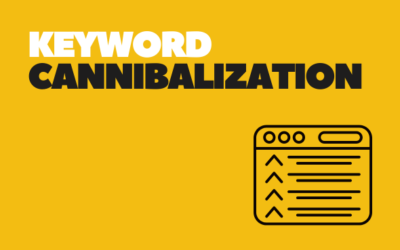Best E-commerce Platforms
The right e-commerce platform is pivotal for any business venturing into the online marketplace. The platform you select will be the foundation of your digital storefront, influencing everything from user experience to SEO, scalability, and integration capabilities. In many SEO and PPC projects we are involved in, we encounter numerous problems because the wrong e-commerce infrastructure is chosen. Unfortunately, it takes longer than necessary to make progress, as changing the infrastructure / CMS requires a huge change, effort, cost, and time. Each platform offers a unique blend of features, strengths, and limitations in a market bustling with options. This guide aims to provide an insightful overview of the top e-commerce platforms, helping businesses and entrepreneurs make informed decisions tailored to their specific needs. Understanding the pros and cons of each platform is crucial in navigating the intricate world of e-commerce and finding a solution that aligns with your business goals, technical capabilities, and growth ambitions.
Shopify with Pros and Cons
Shopify stands out in the e-commerce platform market for its user-friendly design and comprehensive feature set. Ideal for budding entrepreneurs and established businesses, Shopify offers a balance of ease of use and powerful tools for online store management. As one of the most popular e-commerce platforms, it caters to a wide range of business needs and sizes, emphasizing scalability and user experience. Here, we delve into the strengths and weaknesses of Shopify to help you decide if it’s the right fit for your online store.
Shopify Pros:
Ease of Use: Shopify is renowned for its user-friendly interface, making it easy for beginners to set up and manage online stores.
Scalability: It effortlessly caters to businesses of all sizes, scaling from small startups to large enterprises.
Rich App Marketplace: Offers a wide range of apps and integrations, enhancing store functionality and user experience.
Robust SEO Tools: Includes built-in SEO features to improve store visibility in search engine results.
Shopify Cons:
Cost: While Shopify offers a range of pricing plans, the additional costs of apps and transaction fees (if not using Shopify Payments) can add up.
Customization Limitations: Despite having many themes, customization can be limited without knowledge of Shopify’s Liquid coding language.
Content Management: It supports basic blogging capabilities but could be more flexible than dedicated content management systems.
WooCommerce with Pros and Cons
WooCommerce is a powerful, flexible e-commerce solution, especially for those already familiar with WordPress. As an open-source platform, it allows for extensive customization and integration, making it a preferred choice for businesses seeking a tailored online store. WooCommerce combines WordPress’s robust content management capabilities with e-commerce functionality, offering a unique blend of flexibility and power. This section explores the pros and cons of WooCommerce to help you understand if it suits your e-commerce vision.
WooCommerce Pros:
Customization and Flexibility: Being an open-source platform, WooCommerce offers unparalleled customization options, especially for those familiar with WordPress.
Cost-Effective: The essential plugin is free; costs are associated with additional plugins, themes, and hosting.
SEO Friendly: Seamless integration with WordPress makes it an excellent platform for content-driven SEO strategies.
WooCommerce Cons:
Technical Know-How Required: Setting up a WooCommerce store requires a good understanding of WordPress.
Maintenance and Security: Being self-hosted, it requires regular updates and security checks.
Scalability Challenges: While scalable, it demands significant resources and expertise, particularly for high-traffic stores.
BigCommerce with Pros and Cons
BigCommerce caters to a wide range of e-commerce businesses, from growing startups to large enterprises. Known for its comprehensive set of built-in features and scalability, it’s a platform that grows with your business. BigCommerce stands out for its robustness and flexibility, accommodating a variety of e-commerce models and requirements. In this section, we examine BigCommerce’s advantages and limitations to provide a clearer picture of how it could fit into your business strategy.
BigCommerce Pros:
Feature-Rich: Offers a comprehensive set of out-of-the-box features suitable for both B2B and B2C markets.
Scalability: Ideal for fast-growing businesses, providing robust tools for scaling.
Multi-Channel Selling: Supports sales across multiple channels, including social media and marketplaces.
BigCommerce Cons:
Complexity: It can be complex to use, especially for beginners.
Design Limitations: While offering a variety of themes, customization options might be limited compared to other platforms.
Sales Thresholds: The platform includes sales thresholds, requiring plan upgrades when these are exceeded.
Wix with Pros and Cons Pros:
Wix is renowned for its simplicity and ease of use, making it an attractive choice for individuals and small businesses venturing into e-commerce. With a user-friendly drag-and-drop builder and an array of design templates, Wix allows users to create engaging online stores without extensive technical knowledge. Ideal for those starting out or with smaller product ranges, Wix offers a straightforward approach to e-commerce. This section will assess the pros and cons of Wix as an e-commerce platform, helping you determine its suitability for your business needs.
Wix Pros:
User-Friendly Design: Wix’s intuitive drag-and-drop builder makes it ideal for beginners and small businesses.
Customization: Offers a range of templates and design flexibility.
Affordable Pricing: Provides competitive pricing with a free plan available for basic use.
Wix Cons:
Limited e-commerce Features: More suitable for smaller online stores due to limited advanced e-commerce capabilities.
Design Inflexibility: Changing themes after selection can be challenging and may require rebuilding the site.
Scalability Issues: While adequate for small businesses, Wix might not meet the needs of larger, more complex online stores.
Weebly with Pros and Cons
Weebly, known for its simplicity and user-friendly interface, is a great platform for small businesses and entrepreneurs entering the world of e-commerce. With its intuitive design tools and straightforward functionality, Weebly makes it easy for anyone to build and manage an online store. It’s ideal for those who value ease of use over complex functionality. This section explores the advantages and disadvantages of using Weebly for your e-commerce needs, helping you make an informed decision.
Weebly Pros:
Ease of Use: Known for its simplicity, Weebly is ideal for small businesses and entrepreneurs starting their online journey.
Integrated Marketing Tools: It offers built-in tools for SEO, email marketing, and social media integration.
Cost-Effective: Competitive pricing models, including a free option for basic websites.
Weebly Cons:
Limited Scalability: More suitable for smaller online stores; may not support the needs of rapidly growing or large-scale businesses.
Customization Restrictions: While offering customization, it might not be as extensive as other platforms like WooCommerce or Shopify.
Basic e-commerce Features: The e-commerce functionalities are basic, which might not suffice for businesses with complex e-commerce needs.
Selecting the right e-commerce platform requires careful consideration of your business needs, technical expertise, and growth prospects. Each platform offers unique strengths and limitations, making it vital to choose one that aligns with your specific business objectives and operational capabilities.
Shopify vs. Wix vs. WooCommerce vs. Weebly
| Feature | Shopify | Wix | WooCommerce | Weebly |
|---|---|---|---|---|
| Price | $32 | $16 | Free | $10 |
| Unlimited bandwidth | Yes | Yes | Yes | Yes |
| Templates | Free + premium templates | Free + premium templates | Free + premium templates | Free + premium templates |
| Security | SSL Certificate and PCI-DSS Compliant by default. | SSL Certificate, Supported by Anti-fraud Protection | Needs to be managed by the site owner | SSL Certificate, Supported by Anti-fraud Protection |
| Customer Support | 24/7 Live Support | Email & Live chat | Depends on your hosting company | Phone support available |


